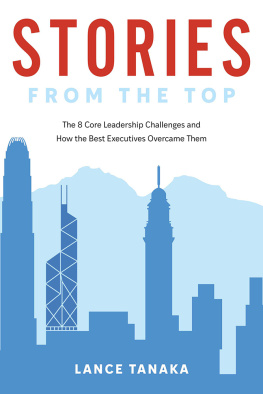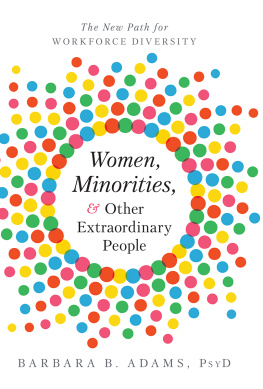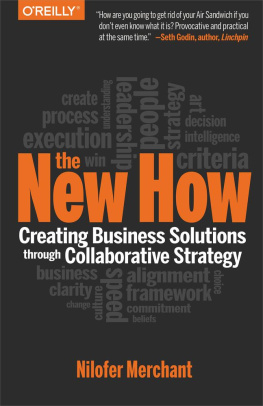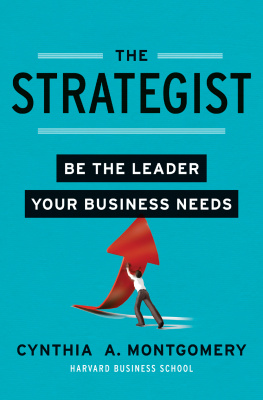Praise for Challenge the Ordinary
Dr. Henman understands what it takes to create an outstanding organization, starting with exceptional talent. At TOPGUN, we never settled for second best, which is why the name TOPGUN is synonymous with excellence.
Captain Thomas Trim Downing, USN, Retired,
former TOPGUN Commanding Officer
We knew in the human spaceflight business that ordinary would never worknot in the astronaut corps nor on the flight operations teams. Only through being an exceptional organization did NASA lead the US to become the worlds greatest spacefaring nation.
Dick Covey, former Space Shuttle Commander
and retired United Space Alliance CEO
Again, Dr. Henman offers powerful leadership lessons in her unique entertaining style. Challenge the Ordinary delivers a wake-up call to business leaders and provides meaningful advice on how to achieve exceptional results in todays challenging business climate.
Jim Dale, CEO of Omega
Challenge the Ordinary
Why Revolutionary Companies
Abandon Conventional Mindsets,
Question Long-Held Assumptions, and
Kill Their Sacred Cows
By Linda D. Henman, PhD

Copyright 2014 by Linda D. Henman
All rights reserved under the Pan-American and International Copyright Conventions. This book may not be reproduced, in whole or in part, in any form or by any means electronic or mechanical, including photocopying, recording, or by any information storage and retrieval system now known or hereafter invented, without written permission from the publisher, The Career Press.
CHALLENGE THE ORDINARY
Typeset by Diana Ghazzawi
Cover design by Ty Nowicki
Printed in the U.S.A.
To order this title, please call toll-free 1-800-CAREER-1 (NJ and Canada: 201-848-0310) to order using VISA or MasterCard, or for further information on books from Career Press.

The Career Press, Inc.
220 West Parkway, Unit 12
Pompton Plains, NJ 07444
www.careerpress.com
Library of Congress Cataloging-in-Publication Data
Henman, Linda D.
Challenge the ordinary: why revolutionary companies abandon conventional
mindsets, question long-held assumptions, and kill their sacred cows / by Linda D.
Henman, PhD.
pages cm
Includes bibliographical references and index.
ISBN 978-1-60163-316-3 --ISBN 978-1-60163-470-2 (ebook)
1. Strategic planning. 2. Organizational change. 3. Organizational behavior.
4. Success in business. 5. Leadership. I. Title.
HD30.28.H473 2014
658.4012--dc23
2014000407
To Angela, Sherry, and Laura, three of the
most exceptional daughters a woman could ask for.
Contents
Introduction
Todays global economy leaves little room for error. It does not allow for mediocrity; the rules and players have changed, and ordinary simply wont work anymore. If companies dont have the best products and services, and the top people delivering them, their competition willand they will do it all over the world, as we experience shifts in economic powers and changes in business paradigms.
Only those leaders who abandon conventional mindsets, challenge their own assumptions, and kill their sacred cows can hope to respond favorably to the volatile global financial systems that continue to morph just as we start to understand them. These successful leaders will need to learn to live in harmony with complexity, speed, instability, and ambiguityto go beyond a competitive advantage to create an exceptional one. Leaders will still need to address the constructs of competitive advantagecost advantage and differentiation advantagebut todays reality will demand more. The economic clarion will call them to create a systematic approach that further distinguishes their companies from all others, both now and in the future.
Organizations will increasingly depend on cutting-edge solutions to never-before-seen problems and clever ideas for those recurring headaches that have always plagued them. Research indicates that traditionally a handful of star performers have created the vast majority of valuable ideas for their organizations. These top thinkers and performers will define the talent leaders will need moving forward.
Leaders who aspire to lead them and to create exceptional organizations for them must set the right tone, make effective decisions, and establish credibilityall daunting tasks. As companies expand and grow, the skills that led to a leaders success often wont sustain further development in a more complex, high-stakes environment, especially ones that now require exceptional performance. Yet few resources exist to help them. They frequently flounder in their attempts to create a competitive strategy, work with the board, and keep talent in their doors, all the while endeavoring to navigate the turbulent waters of leadership. They need this road map to success.
Part One
The Exceptional Organization
Chapter One
Let a Winner Lead the Way
The lyrics from the song Step to the Rear, in the 1967 Broadway production How Now, Dow Jones, announced that heres where we separate the notes from the noise, the men from the boys, the rose from the poison ivy. In this rousing musical, the characters center their lives around the stock market and saving the U.S. economy. Sounds like a familiar theme resurfacingreality imitating art? In the world of business, separating the critical from the unimportant, the real thing from the imposter, the business where average people want to work from the exceptional organization, is no less essential.
We suspected then, but know now, that ordinary just wont work anymore. Research indicates that only a handful of star performers create the vast majority of valuable ideas for their organizations. These top thinkers, who also deliver stellar results, define the talent youll need to create your exceptional advantage, but they dont usually perform to their maximum capacity alone. They are not free agents; rather, these highly talented, extraordinary thinkers need the structure of an organization and effective leadership to do their best work.
Leaders who choose to lead a team of these top performers need to understand that these cleveroften brilliantindividuals offer more, so they expect more in return. The major-league player wants to play with other stars, not benchwarmers. Similarly, organizational stars define themselves by their excellence, so they want to associate with an organization that does too. They hold high standards for themselves, so it makes sense that they will hold their places of employment to equally high standards. They want to work with other exceptional players in a culture that fosters their growth, formulates a clear strategy for their success, and then creates the day-to-day processes that allow them to achieve their personal goals and realize their need for accomplishment. In short, they want strong leaders who lead exceptional organizationsagile yet stable organizations that hold on to their core values while responding adeptly to the temporary nature of the global economy.
The Paradoxical Organization: Transient and Timeless
A paradox, from the Greek word meaning contrary to expectation, is a statement that seems self-contradictory but may be true. It seems to conflict with common sense, but we believe it nonetheless. It contains two true statements that, in general, cannot both be true at the same time, yet it challenges us to explore the distinction between truth and plausibility. For example, if I say, Im a compulsive liar, do you believe me or not? Can someone be both a compulsive liar yet be telling the truth at the same time?







